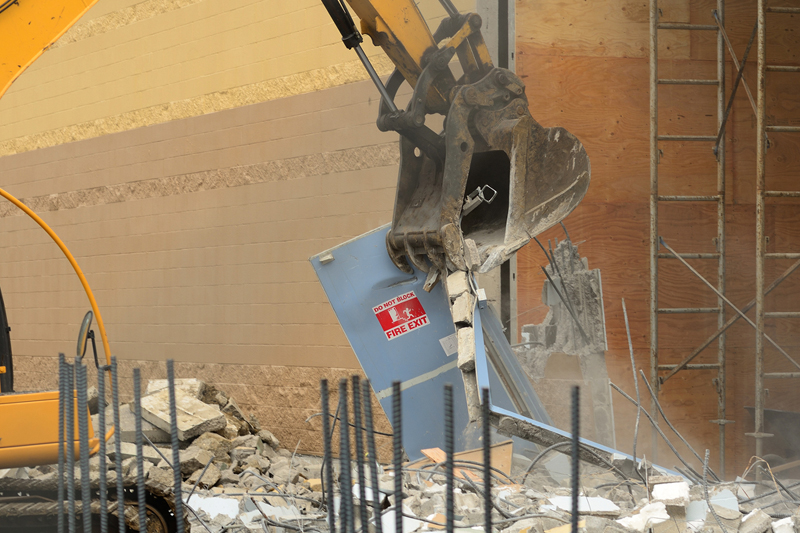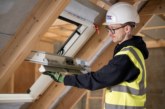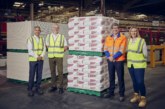
PBM speaks with Sue Corrick, Product Marketing Manager at Allegion UK, for an insight into sustainable ironmongery and why the notion of a ‘product life cycle’ matters.
There has always been a certain ebb and flow towards sustainability and while it’s often recognised as critical, differing points of view and priorities have made it difficult to form a common push towards improvements. However, in recent times, the quest for environmental sustainability has become more widespread.
With the expectations on corporate responsibility also growing, it’s clear that meeting environmental obligations — whether as an individual customer or organisation — is only growing in importance.
Building environments account to around 40% of the UK’s carbon footprint whilst the construction industry also produces a staggering amount of waste. According to the 2018 edition of UK statistics on Waste, in 2014, the UK generated a total of 202.8 million tonnes of waste, with Construction, Demolition and Excavation responsible for 59% of that, totalling 119.6 million tonnes.
Furthermore, the construction industry also accounts for 55% of material consumption in the UK. And with architectural ironmongery constructed of iron, steel, aluminium and timber, this subset of the sector is also contributing to the statistics.
As cited in the ‘GAI Specifiers Guide towards Ironmongery and the Impact of the Environment’, decision makers can look to ‘Reduce, Reuse and Recycle’ in a bid to improve their sustainability efforts. Much of this is being done by eliminating product and packaging waste, repurposing excess or discarded materials and creating innovative products and solutions that are better placed to meet environmental regulations.
Lasting life cycles
To improve things further, suggests Sue Corrick, Product Marketing Manager at Allegion UK, there must also be greater focus on extending the product life cycle itself. She said: “By extending the life cycle of ironmongery and minimising the need for repeat manufacturing, shipments and packaging, manufacturers can further reduce carbon footprint and protect our future environments. The life cycle of a construction product may also go through maintenance, refurbishment and demolition stages — of which, longevity and recycling elements must be considered to ensure the hardware outlasts the building structure itself.”
Sue continued: “On product packaging, with the impending Plastic Packaging Tax and practices such as the Extended Producer Responsibility (EPR) coming into effect in 2022 and 2023 respectively, the onus is on manufacturers to implement plans that make use of renewable resources and 100% recyclable materials. We’ve been making those steps at Allegion UK, right down to label classifications but with various stages of the product life cycle to consider, our collective efforts can’t end there.
“With construction at the heart of waste in the UK, there has been an increased demand for information on the environmental impact that construction products have, and with that we’ve seen a rise in initiatives that help manufacturers provide that necessary product transparency.
“ISO 14001, for example, is the most recognised international standard for environmental management systems and is designed to improve resource management and overall environmental performance through the product life cycle. By following this standard, manufacturers can better their environmental standing and take the first step in providing visible and detailed evidence for consumers that now seek this as part of their purchasing decision.
“Further programmes include the Environmental Product Declaration (EPD), a complete mapping of a product’s environmental footprint and a standardised way to communicate the environmental impact of a product covering everything from material acquisition to waste generation.
Sue explained: “For an EPD to be awarded, a Life Cycle Assessment must also be undertaken on a product and this must meet Product Category Rules, and therefore be declared as acceptable in building rating schemes such as BREEAM. We’re honoured to be part of the EPD programme at Allegion UK, and although it’s not currently mandatory for manufacturers in the UK, we urge others to consider the importance of EPDs in ironmongery.
She concluded: “The significance of sustainability is growing quickly, and it’s key for decision makers — whether at manufacturing stage or end users — to pull together and recognise this if we want to make a difference. By stepping up, standards can continue to be raised across all areas of the product life cycle, from manufacturing to recycling, and thus create better building environments for the future.”
Click the link for more information on Allegion’s range of products and support services for merchants.
As a mark of its commitment to supporting sustainability in construction, full EPD documentation is available for download from the Allegion UK website on Briton products in their respective categories, whilst the company is also “proactively aiming for 100% sustainable packaging for our products” ahead of the Plastic Tax and Extended Producer Responsibility coming into effect in 2022 and 2023 respectively.
For example, before January 2022, customers will find all plastic shrink wrap and plastic screw bags within Allegion’s Briton product boxes will boast upwards of 30% or more recyclable content and 100% biodegradable polystyrene. Cardboard recycling is also being considered, with new 100% recyclable outer packaging designs in development.
A version of this article appeared in the October edition of PBM. Click the lick to read the full digital issue.









